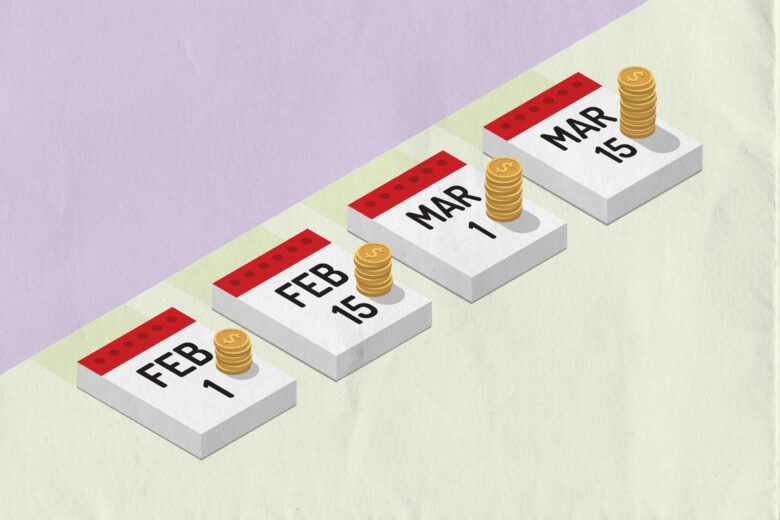When you apply for a loan, you’ll need to sign a contract with your chosen company/bank. The inability to make timely payments of invoices may result in various consequences, including legal action.
Loan repayment penalties are typically applied if payments are late. The later the payment is due, the harsher the penalty.
When a payment is missed, many events can occur depending on the lender’s practices and the conditions of your arrangement with them.
The term “default” refers to the legal consequence of not paying back debt within the specified time frame.
If you are unable to make a loan payment, you may be considered to be in default. In order to prevent this from happening or if you need some answers keep on reading!

Source: money.com
Contents
- What happens if you miss a payment on your installment loan?
- What type of fees are there?
- How does this affect your score and your future state?
- What can a loan company do if you don’t pay back?
- What to do if you can’t pay your loan?
- What more to know about installment loans and where to get instant approval?
What happens if you miss a payment on your installment loan?
If you fail to make a loan payment when due, your lender may automatically levy a late fee, subject to the terms of your loan agreement and applicable legislation.
After 30 days, the missed payment will be reported on your credit record and will have an effect on your credit score.
The longer you go without making a payment toward a debt, such as 60, 90, or more days, the more negative the notation will be on your credit report.
The lender may take further action, such as repossessing collateral, canceling the obligation, or filing a lawsuit to recover the outstanding balance.
If you can pay off your debt in full or come to an arrangement with your lender within 30 days, you may be able to avoid more severe penalties.
What type of fees are there?
The amount of the fee, which varies by lender and state, may be based on the kind of loan, the amount you owe, and the length of time that payments have been late. This also varies from one bank to the other.
Any questions about the terms of your signed contract can be answered by checking its terms. The truth is that you should never experience some hidden/worrying fees.
There is the possibility of a grace period being offered by the lender.
Lenders are allowed to report a missed payment to credit reporting agencies once 30 days have passed.
This could have a negative impact on your credit rating, but it isn’t the worst possible scenario/position to be in.
The balance can continue to fall if payments are not made. However, the lender has the choice to report sooner or not at all.

Source: folhadaterra.com.br
How does this affect your score and your future state?
Your credit score can suffer as a result of missed payments and default notices, making it more challenging to get credit in the future. We all want perfect credit scores, don’t we?
If you are unable to pay back the original lender, your loan may be sold to a collection agency.
Now that the collection agency has “purchased” your debt, they will try to collect it from you preferably at their expense.
Your lender or a debt collector may file a County Court Judgment (CCJ) against you.
You will receive a copy of your judgment in the mail, which will include the following details: the amount you owe, the mode of payment (whole or in installments), the deadline, and the person you are required to compensate.
If you don’t pay the debt within the stipulated one-month period, a judgment will be added to your credit report, and stay there for six years.
What can a loan company do if you don’t pay back?
If you go into default, the lender might send your account to collections.
Some lenders employ internal collection procedures, which frequently denote a more proactive approach on their part to recouping the loan.
If the debt is not paid within a certain amount of time, reminder notices may be sent to you indicating that additional collection efforts will be made.
Some financial organizations assign debt collection companies to handle past-due accounts. This varies from one company/lender to the other.
Such businesses may file a lawsuit and seek a monetary judgment in order to recover money from you.
If they win, they could be able to sue you and implement measures like account liens and wage garnishment.
Before speaking with debt collectors, make sure you are aware of your rights.

Source: scoremaster.com
What to do if you can’t pay your loan?
If you know you won’t be able to make a loan payment, don’t ignore the problem.
If you have experienced a change in your financial circumstances, such as the loss of your job or a significant decrease in your income, you should communicate this to your lender.
There are a variety of lending programs that can help in these situations.
If you can’t find a program to help you, it’s still important to know what you’re up against so you can make an informed decision about how to tackle your debt.
Rare situations may qualify you for a short-term loan to help with an unexpected expense.
Using reputable lenders is a smart way and a smart decision on how you can apply for a loan and, if approved, receive the funds the same day or the following business day.
What more to know about installment loans and where to get instant approval?
After reading all of this through, does it sound appealing and interesting + would you like to give it a go? Are you wondering what your options are? The truth is that there are a ton of different options, such as installment loans for federal employees, veterans, those with a savings account, without direct deposit, etc. You can find the best option for you by checking out heartpaydays.com.

Source: Inspirationfeed.com
Borrow anywhere from $100-$5000 within a 24-month period and enjoy a safe, reviewed, and checked-out platform & service that will help out your situation. For any additional questions, you can message them and have everything sorted out within minutes.
